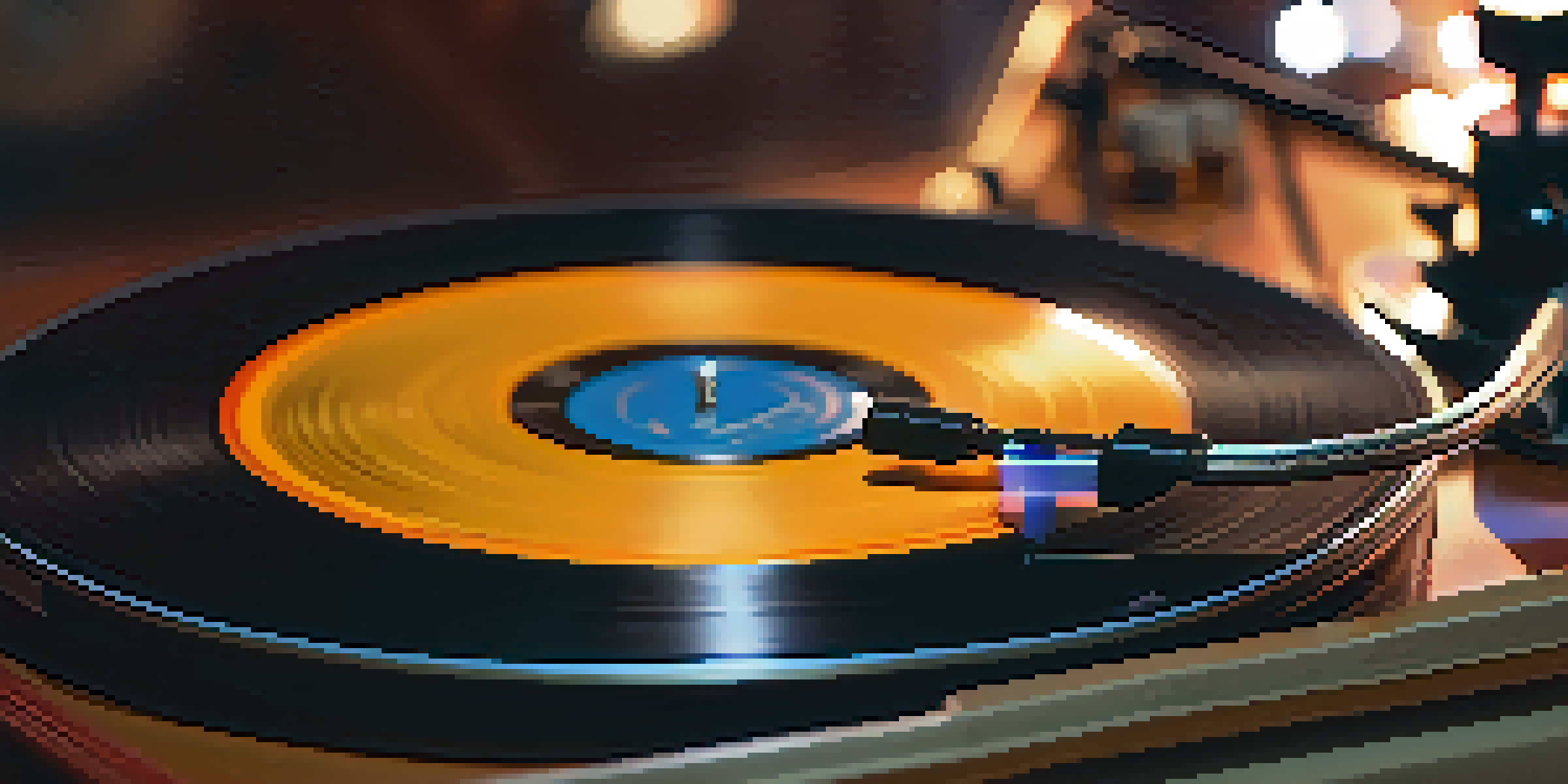Types of Music Licenses: Which One Do You Need?

What Are Music Licenses and Why Are They Important?
Music licenses are agreements that give you permission to use someone else's music. They're essential for protecting the rights of artists and ensuring that creators are compensated for their work. Whether you're a filmmaker, a podcaster, or a content creator, understanding music licenses can save you from legal troubles down the road.
Without music, life would be a mistake.
Think of music licenses as a ticket to a concert. You wouldn't just walk in without paying; you'd need that ticket to enjoy the show. Similarly, music licenses allow you to enjoy the use of a song while respecting the artist's rights.
Without proper licensing, you could face hefty fines or even lawsuits. So, knowing the ins and outs of music licenses is crucial for anyone looking to incorporate music into their projects.
Understanding the Different Types of Music Licenses
There are several types of music licenses, each serving different purposes. The most common types include synchronization licenses, mechanical licenses, and performance licenses. Each license has specific rules and costs associated with it, making it vital to choose the right one for your needs.

For instance, a synchronization license is required when you want to pair music with visual media, like films or YouTube videos. On the other hand, a mechanical license is necessary if you're reproducing a song on physical formats, such as CDs or vinyl.
Importance of Music Licenses
Music licenses protect artists' rights and ensure creators are compensated for their work.
By understanding these categories, you can navigate the world of music licensing more effectively, ensuring that you're compliant with copyright laws and supporting the artists you love.
What is a Synchronization License?
A synchronization license allows you to use a piece of music in conjunction with visual media. This could be anything from a movie or TV show to a video posted online. It's crucial for filmmakers and content creators who want to enhance their work with music.
Every artist was first an amateur.
Imagine you're creating a touching montage for a wedding video. To use a popular love song, you'd need a synchronization license to legally incorporate that track. Without it, you risk facing copyright infringement issues.
Additionally, obtaining a sync license often involves negotiating terms with the copyright owner, which can include fees or royalties. So, if you're planning to use music in your visual projects, make sure to secure a synchronization license first.
What is a Mechanical License?
A mechanical license is needed when you want to reproduce a song in a physical format, such as CDs, vinyl records, or digital downloads. Essentially, it's a way to legally distribute recorded music and ensure that songwriters get paid for their work.
Think of it this way: if you plan to cover a popular song and share it on a CD, you must obtain a mechanical license first. This agreement allows you to reproduce the song while compensating the original creators.
Types of Music Licenses Explained
Understanding different types of music licenses, like synchronization and mechanical licenses, helps you choose the right one for your project.
With the rise of streaming platforms, mechanical licenses have evolved to include digital formats too. So, whether you're an aspiring musician or a producer, understanding mechanical licenses is key to maintaining your legal standing.
What is a Performance License?
A performance license is necessary when you want to publicly perform music, whether it's live or recorded. This applies to venues like bars, restaurants, and concert halls, as well as events like weddings or parties where music is played.
For example, if you're hosting a live event with a band, the venue must obtain a performance license to legally play the music. This ensures that songwriters and artists receive royalties from public performances.
Performance licenses are usually obtained through organizations like ASCAP or BMI, which collect fees on behalf of artists. So, if you're planning an event that involves music, don't forget to check if a performance license is required.
What is a Master Use License?
A master use license grants permission to use a specific recording of a song. This is separate from the composition rights and is often required when using a song in film, television, or commercials.
For instance, if you want to use the original recording of a song in your movie, you'll need a master use license from the record label or the rights holder. This ensures that you're legally allowed to use that particular recording.
Navigating the Licensing Process
Researching licenses and consulting experts can simplify the music licensing process for your creative projects.
Master use licenses can often be more complex and costly than other types, as they involve negotiations with record labels. So, if you're eyeing a specific track for your project, be prepared to navigate this licensing process.
How to Determine Which License You Need
Choosing the right music license starts with understanding your project. Ask yourself questions like: What type of media are you creating? Will the music be used for commercial purposes? These factors will guide you in selecting the appropriate license.
For example, if you're making a film that will be shown in theaters, you'll likely need both a synchronization license and a master use license for the music. However, if you're simply sharing a video on social media, a sync license might suffice.

It's also helpful to consult with a music licensing expert or a lawyer if you're unsure. They can help clarify your needs and ensure that you're covered legally, allowing you to focus on your creative vision.
Tips for Navigating the Licensing Process
The music licensing process can seem daunting, but it doesn’t have to be. Start by researching the specific types of licenses that apply to your project and make a checklist of what you need. This will help you stay organized and ensure you don’t miss any crucial steps.
Consider reaching out to music licensing platforms or agencies that streamline the process. These services can often provide you with the licenses you need while handling negotiations on your behalf, saving you time and headaches.
Finally, always keep records of your licenses and agreements. This documentation will be invaluable if any questions arise about your usage, giving you peace of mind as you share your creative work with the world.